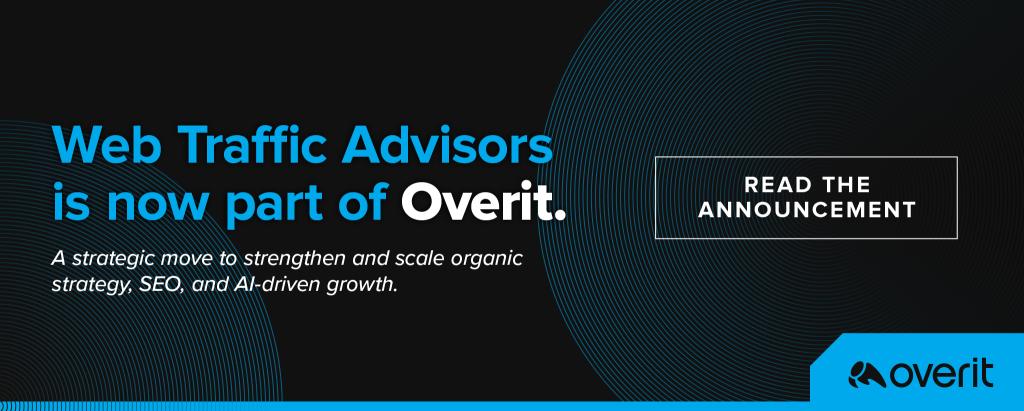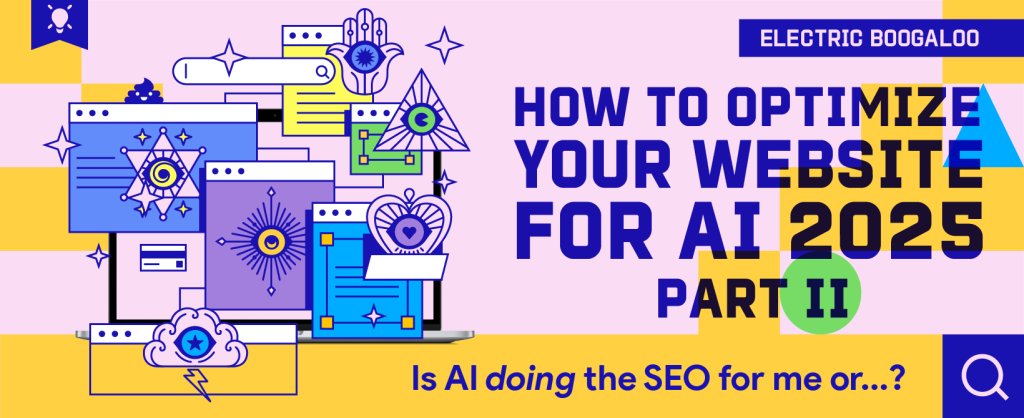
Let’s be real, was there any chance I wasn’t coming to the Women Who Code session?
No. Not likely.
Overit fans will know that we’re big champions of women who can code. In fact, our leader developer is teaching his daughter to code right now, which I think is pretty cool.
Today’s conversation introduces us to three smart women who code – Ashley Hathaway, Jada Hawkins and Erin Commataro. Moderating is Angie Burns.
We start with introductions.
Ashley Hathaway says she’s always just had fun. She goes with what makes her happy – her mom’s career advice was “do what you love.” For her, that started out building websites and hacking around. She didn’t know she was a developer until she found out that boys called themselves “developers” for doing the exact same thing she did. Hee! She stayed interested through the years and has learned as much as she could. She’s currently a product manager at IBM. She wants to facilitate great work and remove barriers. She sounds pretty badass.
Jada Hawkins is a junior at Barnard College of Columbia University and Co-Founder of Athena Digital Design. She has one goal – to diversify the technology industry. When she started taking development classes, she didn’t see any women, and especially few black women. She started a conversation about it and that led to the creation of Athenia Digital Design.
Erin Commarato double majored in computer science and art. She noticed that when she was in computer science classes, there were just three women in a class of 25. But when she took art classes, it was 60 percent women. It was eye-opening for her. She also found she can use what she learned in fine arts to paint the world in coding for people to play in. She gets to choose what users do within her world (the website).
Angie: What is your opinion as to why this industry is so male dominated?
Erin: I think it’s a pipeline problem. Only 12 percent of our workforce consists of women with CS degrees. That means there are few women employable in STEM technologies. 75% of women, when polled, said they felt uncomfortable in their workplaces. Less than 15% of men said they felt uncomfortable. 53% of women in STEM careers end up leaving after their first year.
Jada: From the college standpoint, she feels uncomfortable in her classes. She’s in an Internet Technology Policy class right now – there’s only one other woman in that class. She feels lucky that they’re friends so they can talk about things together. But there are still problems. They have a final group project to do where they can either work solo or pair up in groups of threes. They are one woman short and the men make them feel belittled. So they’re both working solo. The titles of the classes are also bad. She took a Discreet Math class but when she signed up the title was something that made no sense and wasn’t attractive to women. We need professors who create space for women to come together in class.
Ashley: Around the middle school time is when you see girls lose interest in computer science and those trends get much worse from there. For her, it’s important to not exclude women from the conversation to begin in. To foster a pipeline in middle school and high school to keep them involved.
Do you think this is something that happened in the last 10 years? When she went to school, there were a lot of women computer science majors.
Mod: There has been a drop. [She cites a number of stats that I, unfortunately, completely miss.]
Ashley: From her mentors, they never saw a problem with the industry 10-15 years ago. What’s interesting is that they do see a problem now.
[An audience member asks if people are just dropping out – like they do for other majors]
Jada: Dropping out of the courses for the material isn’t the issue at Columbia. There are a lot of tutors and other resources available to you. Most of the people who have dropped out are women who have felt uncomfortable or people who have found other interests.
Erin: There’s a misconception about what coding is. It’s not seen as cool. Tech isn’t cool. Pop culture isn’t designed to impress upon kids that tech is cool. It’s more disposable. A cool new phone comes out this year, but it’s obsolete next year. Whereas a basketball is the same year after year.
Jada: She recommends Code.org – shows “normal people” learning to code and talks about coding in a real way. She mentions that she took a typing course in lower school. That seems crazy now that it existed – everyone can type. The same will happen with coding. Everyone will learn to code, it will be necessary.
Is it making coding more accessible or teaching women to be comfortable with being uncomfortable?
Jada: She was in robotics club as a child. She was that person. From the second grade to fifth grade she was in the robotics club. Then, her family moved and her new school didn’t have a robotics club. She didn’t take another computer science class until her senior year. When she did, her professor came in and asked the girls why they were there because coding is a male sport. What’s really important is having those professors and those mentors who say, “I know this is an issue and I’m here to stand up for that.”
Ashley: It has to be a switch of values. We have to say that design is just as important as backend development. It takes both sides understanding and appreciating one another. Her number one piece of advice is that we need to value things like project management. Just because you’re a developer pushing code all day, that’s great, but communicating what you’re doing and those scrum calls are just as valuable.
A man in the audience says he has a hard time finding skilled devs. How do you hire for it? Who is teaching them?
Ashley: Most devs are self-trained.
Erin: Our education system is not set up to evolve as quickly as technology evolves. By the time you’re teaching something, something else has come out. When hiring, look for someone who is smart and who gets things done. Even if they don’t know exactly what you’re hiring for, they’ll learn it.
Another man says he has a daughter (she’s currently five weeks old) and would be thrilled if she went into a CS-based career. Looking 20 years down the road, what type of culture shift needs to happen to get her there?
Jada: The shift needs to happen where younger people need to be educated. Before she took her computer science class, she thought technology was Harry Potter. She had no idea what went into creating something like that. People think the Internet is magic. They think it just appears. There was a Buzzfeed poll where they asked people what a motherboard was. 75% of people thought it was a spaceship. Until we educate people, and it becomes actual knowledge that FB was actually something someone sat down and coded, we won’t get there. We have to educate people that it’s even possible. Until we do that, nothing will change.
Ashley: We have to tell men that they can be a project manager, a stay at home dad, etc. If we tell people “do what makes you happy,” it works out for girls and boys. If a girl wants to be a computer science major, that’s great. If a guy wants to be an art manager, that’s great. We need role models and body guards. We need people to be there when we have ideas to bounce off or to vent.
Jada is prompted to speak about women-focused hackathons:
Jada: Jada has attended hackathons geared toward women, as well as male-dominated hackathons. What she found is that women-focused hackathons are presented as, “come up with an app for this non-profit,” where as male-dominated hackathons are presented as, “build something cool.” It frustrated her because it was all very dainty. She felt like she was being put in a pink box. And yet, when she goes to male-dominated hackathons, she feels kind of shut out. There’s a push and a pull and its difficult.
In general, what can men do to be more supportive to women in the workplace and on campus?
- Value soft skills like project management or design as much as hard skills like engineering or architecture
- Value diversity of opinion
- Help us. Speak up. Be a role model to others who may not know another way.
- Make internships and jobs for women more available
- Be a mentor for college students
- Expose teenagers to tech-related career options
- Have c-level men mentor or sponsors women
For women who have already gone through high school or college, what’s the incentive to go back and learn to code?
Erin: It’s about creating something. When you know how to code, you have the tools to create anything you want. There’s really no bounds at this point to what you can do when you know how to code. She thinks that’s the most awesome thing in the world.
Ashley: It depends on what your role is and what your goal is. To her, coding is interesting. It’s something she finds kind of fun. Knowing code and being able to listen to a conversation, and then be able to call BS to something, is great. For her, understanding how systems connect. Understanding how computers and clients and servers work, elevates her perspective on the world.
Jada: Mentions Treehouse.org. You can learn on your own.
Erin: College courses can give you great fundamentals but you won’t learn the greatest stuff.
Audience member: Is “learn it on your own” a solution? We don’t tell doctors to learn it on their own. For a lot of people those first few tries are so hard, they stop.
Ashley: It depends on your goals. Bootcamps that pop up can the mediary between learning it on your own and taking classes on it.
Jada: The cofounder of General Assembly was an art major. He picked up coding in college by himself. It’s not that hard.
To end, Angie shares some websites all about promoting women in technology:







